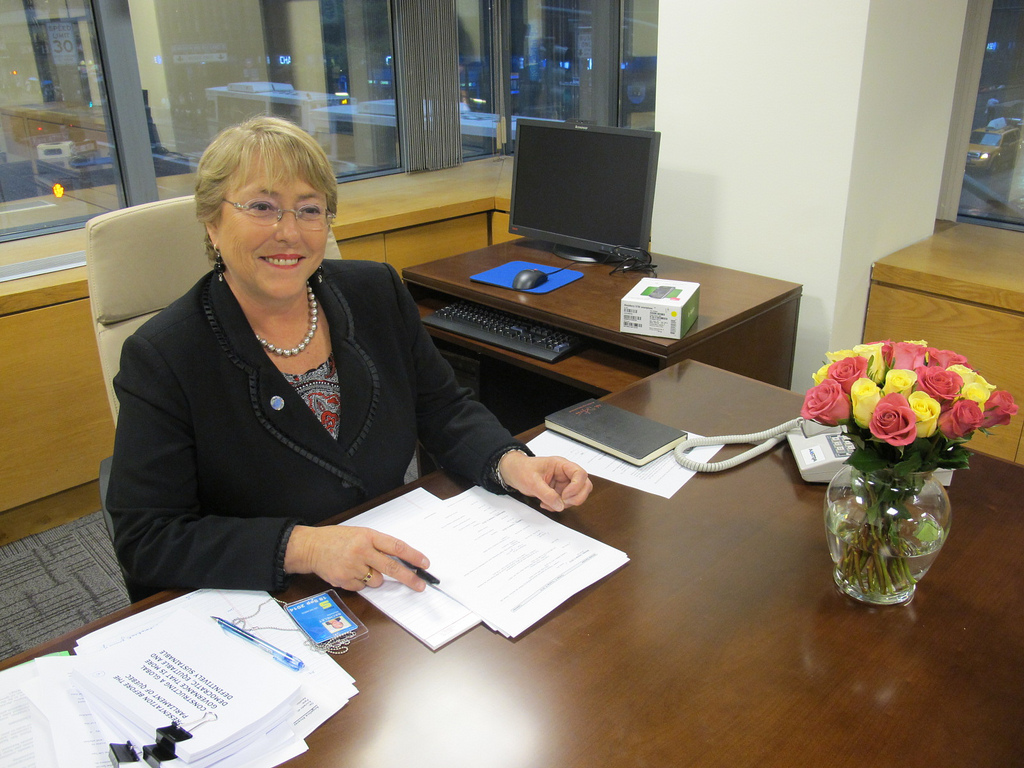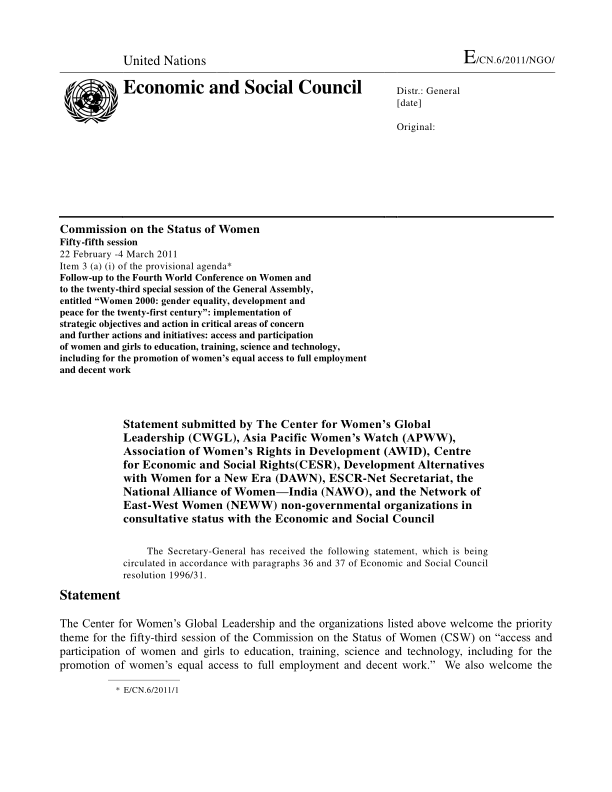 A new United Nations agency opened its doors in January 2011: UN Women, headed by former Chilean President Michelle Bachelet. The agency is part of the UN reform agenda to merge and build on several previous UN bodies focusing on gender equality and women’s empowerment.
A new United Nations agency opened its doors in January 2011: UN Women, headed by former Chilean President Michelle Bachelet. The agency is part of the UN reform agenda to merge and build on several previous UN bodies focusing on gender equality and women’s empowerment.
The rationale for the creation of a single, authoritative “superagency” for women was to better direct UN activities on gender equality and empowerment of women and girls. Previously, UN work on these issues was fragmented across several poorly-funded, often uncoordinated bodies; the lack of a single UN entity specifically responsible for advancing gender equality and women’s rights was seen as a gaping UN failure. UN Women will be able to channel resources and merge mandates in order to achieve a bigger impact and acquire a more powerful voice.
In a world where women perform 66 percent of the world’s work and produce 50 percent of the food, yet comprise 70 percent of the world’s poor, earn just 10 percent of total income and own one percent of property, according to UN reports, a coalition of NGOs, including CESR, called on the new agency to prioritize economic and social rights.
